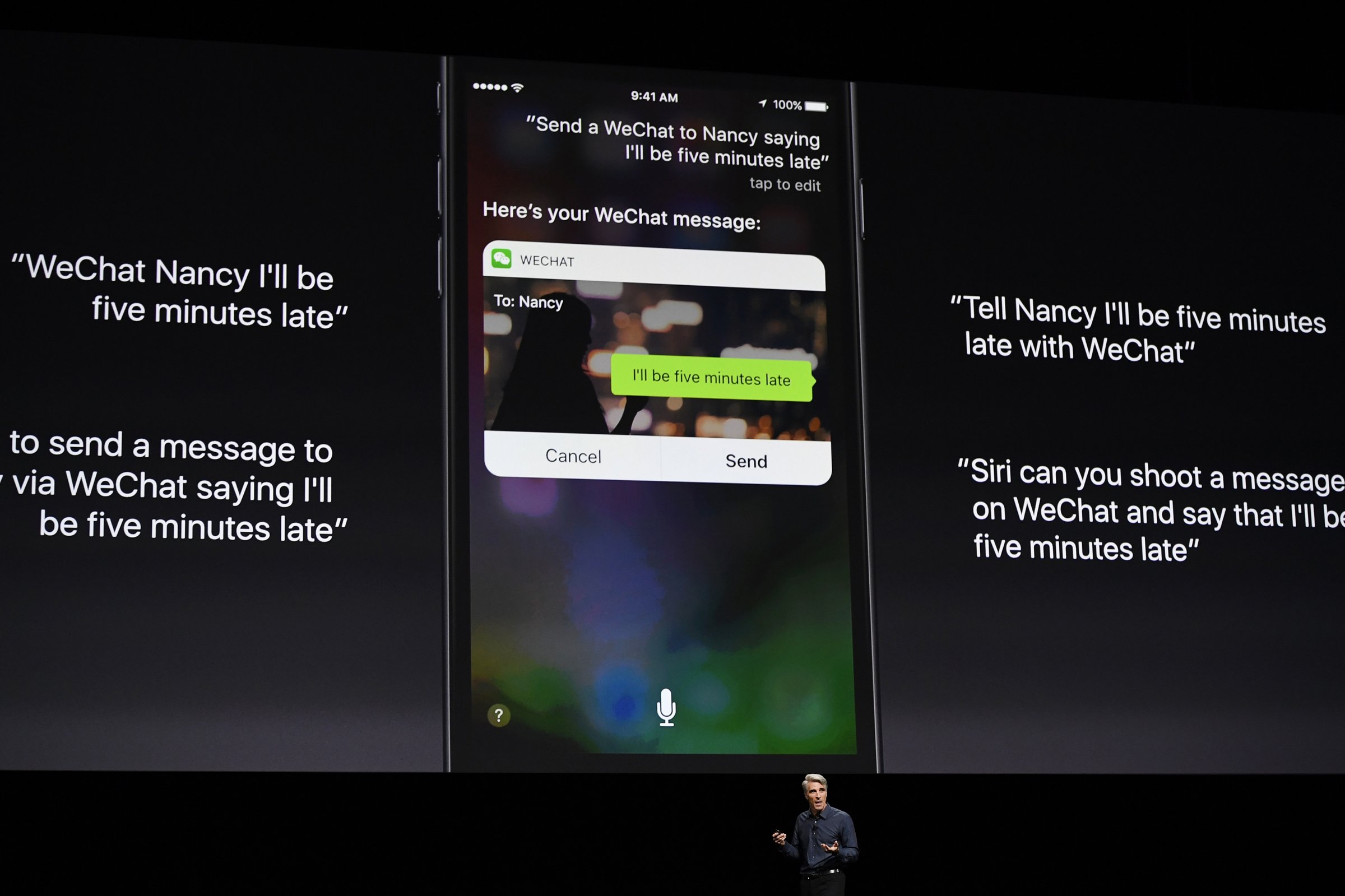
“Think different” was an iconic tagline that helped define Apple for years. “A thousand songs in your pocket” was another solid slug that sold iPods and the idea of instant digital music. And then there was “Your intelligent assistant that helps you get things done by just talking.” This exhausting mouthful, used by Apple’s marketing chief Phil Schiller at Siri’s reveal in 2011, fell flat. And it has framed how people have viewed the world’s most recognizable voice assistant ever since.
Now the time has come to think differently about Siri. Five years ago, Apple released it as a simple iPhone feature. But today’s Siri is something else entirely. Found everywhere from Apple Watches to Apple TV — and soon to be on Macs — it’s no longer just an intelligent assistant. It’s an invisible operating system poised to propel Apple, and its products, into the future.
The changes in Siri are not just an evolution of the iPhone’s software or even of Apple itself. They represent a major shift in personal computing, like the move from DOS to mice, or from mice to touchscreens. Command prompt operating systems like DOS were maddeningly difficult for neophytes. One false keystroke, and nothing happened — or worse, the wrong thing happened. Graphical operating systems, like the original Mac OS, expanded computers’ functionalities with pointing tools like mice and trackpads, which let users accomplish a wider variety of tasks. And the touchscreen interfaces of Apple’s iOS and Google’s Android did away with pointing devices altogether, turning our fingers into digital controllers.
Today there’s a new evolution in computer interaction afoot: We’re making the leap to voice control. Apple has Siri, Google has Google Now, Amazon has Alexa and Microsoft has Cortana. I believe Siri is leading the way, and not just because it’s coming to Mac computers later this year. After all, Cortana has been on Windows PCs for years. It’s because when Siri arrives on the Mac, it will then be available on Apple computers, smartphones, wearable devices and the Apple TV set-top box. That’s an impressive arsenal.
But what’s most telling about the future of computing is where Siri is headed next. Apple has been slowly building a smart home ecosystem, and is rumored to be developing its own car. As Apple moves into this next stage of innovation — away from “pure” computers and into everyday devices — it will benefit from a streamlined operating system that can control lots of different devices. It needs one that isn’t reliant on displays, because devices like smoke alarms and toasters don’t (and shouldn’t!) have screens, while drivers’ eyes are best kept on the road, not the center console.
That streamlined operating system is exactly what Siri is becoming. That’s especially true given Apple’s recent announcement that third-party apps are coming to the platform. As more apps gain Siri compatibility, they will be freed from the tyranny of their screens. Forget clicking or tapping on files, programs and apps. Simply ask for what you want, and your computer, smartphone, tablet, smart home gadget or car will make it happen.
What Apple needs to do next is make it clear how Siri’s various incarnations will talk to one another to provide a seamless experience for users across multiple devices. While that element is currently lacking, it seems clear that’s where Siri and other voice assistants are headed, opening the door to a future where our voice, not our hands, is our primary means of interacting with computers. Not long from now, looking back on a keyboard and mouse might evoke a classic Star Trek scene, in which the crew time-traveled back to 1980’s San Francisco. Scotty, the Enterprise’s master engineer, tries talking to a computer, to no avail. Then he picks up the mouse and speaks into it: “Hello, computer.” Finally, he’s told just to type in what he wants.
“A keyboard,” he scoffs. “How quaint.”
More Must-Reads from TIME
- How the Economy is Doing in the Swing States
- Democrats Believe This Might Be An Abortion Election
- Our Guide to Voting in the 2024 Election
- Mel Robbins Will Make You Do It
- Why Vinegar Is So Good for You
- You Don’t Have to Dread the End of Daylight Saving
- The 20 Best Halloween TV Episodes of All Time
- Meet TIME's Newest Class of Next Generation Leaders
Contact us at letters@time.com